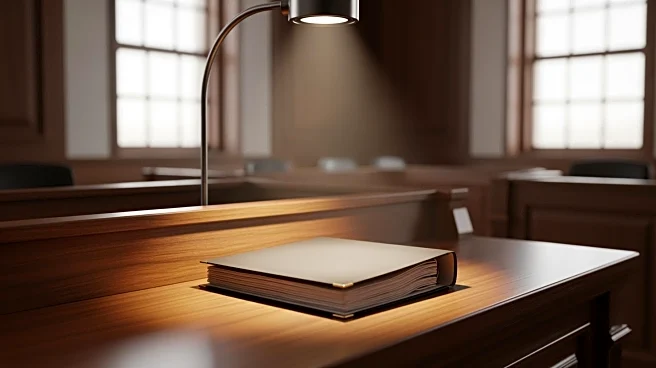What's Happening?
A judge has ordered the consolidation of litigation involving Jackson Walker, a law firm facing fee forfeiture claims in bankruptcy cases. The U.S. Trustee's Office filed the litigation to vacate fee awards
related to cases handled by Jackson Walker during the tenure of former U.S. Bankruptcy Judge David Jones. The controversy stems from an undisclosed romantic relationship between Judge Jones and Elizabeth Freeman, a former partner at Jackson Walker. This development marks a significant step in the legal proceedings, as the consolidation aims to streamline the process and address the allegations of impropriety in the awarding of fees.
Why It's Important?
The consolidation of these cases is crucial as it addresses potential ethical violations in the legal system, particularly concerning the impartiality of judicial proceedings. The relationship between Judge Jones and Freeman raises questions about the integrity of the fee awards granted to Jackson Walker, potentially impacting the firm's reputation and financial standing. This case highlights the importance of transparency and ethical conduct in the judiciary, which is essential for maintaining public trust in legal institutions. The outcome of this litigation could set precedents for how similar cases are handled in the future, influencing policy and practice in bankruptcy proceedings.
What's Next?
As the litigation progresses, stakeholders including Jackson Walker, the U.S. Trustee's Office, and other involved parties will likely prepare for further legal arguments and evidence presentation. The consolidation may lead to a more efficient resolution, but it also intensifies scrutiny on the ethical standards within the legal profession. Observers will be watching closely for any developments that could affect the firm's operations and the broader implications for judicial conduct. The case may prompt discussions on the need for stricter regulations and oversight in legal proceedings to prevent conflicts of interest.
Beyond the Headlines
This case underscores the ethical challenges faced by legal professionals and the judiciary. It raises broader questions about the checks and balances necessary to ensure fairness and integrity in legal processes. The relationship between Judge Jones and Freeman could lead to calls for reforms in how judges and lawyers disclose personal relationships that might affect their professional duties. Additionally, the case may influence how law firms manage internal relationships and conflicts of interest, potentially leading to changes in firm policies and practices.











